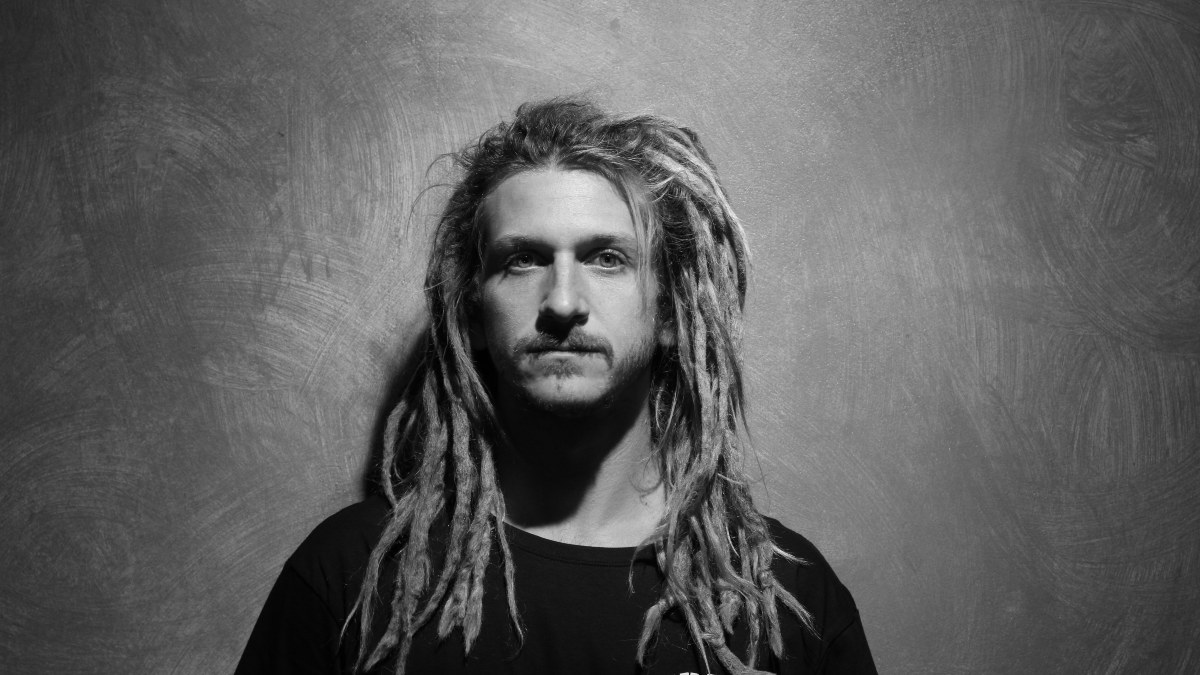A sample hunter, with a free spirit and Brazilian music running through his veins. Looking at Afterclapp, from a particular perspective, we have before our eyes an artistic soul.
Rodrigo Vellutini is a person who brings life to the project of deep diving into mixes and cuts. In his project, he explores the different sides of Brazilian music, mixing it with Hip Hop, Jazz, Lo-Fi, Soul and Funk to light up a full of personality Downtempo. A special blend of different genres, which results in comforting sounds to the ears and soul.
Besides that, we have a soundtrack designer, which has already earned him some awards. His very particular and original formula has been taking his music to many places all over the globe and he has even seen one of his tracks go viral on TikTok. Currently is on a tour through Europe with gigs in Portugal, Germany, and England, we invited the artist for a special chat.
Connect with Afterclapp on Spotify | Soundcloud | Instagram
Hi Rodrigo, how are you? First of all, we want to get to know you “from the beginning”. How did your history with music begin?
As crazy as it sounds, it all started with the piano and clarinet. Since I was little, my mother encouraged our musical culture and got us into music lessons. Over time, rock won me over and I changed the piano for the electric guitar. A few years later it was MPB’s turn, and the electric guitar was swapped for the acoustic guitar, which I found in a closet forgotten and I took to a luthier to be restored.
And how did the love of sampling come about? What kind of music do you usually hear? Is there a type of music that is a “gold mine” to you?
After my MPB days, I fell in love with Hip Hop, because it’s this mixture of the old and the new, this transformation of classic into contemporary, that conquered everything in the 90s & 00s.
I usually listen to everything. I have playlists from Brazilian music to Japanese jazz and Arab funk soul on my Spotify playlists. But for me, the real gold mine is the music that was created here in Brazil in the 60s & 70s mainly.
But for me, the real gold mine is the music that was created here in Brazil in the 60s & 70s mainly.
By the way, who are your mentors on this journey with global music? You’ve been involved in other musical projects and now going solo. What is Afterclapp’s music language?
My biggest mentors were Ceah and Gus Caram, without a doubt. Ceah taught me how to produce and DJ on vinyl, and Gus Caram taught me how to DJ as a whole. It was all a very natural process that happened during college where the 3 of us were learning together and creating together, and also evolving and supporting each other. So much so that I still work with them to this day!
I created the Afterclapp project to be able to explore all this musical baggage in an unlimited way.
So, I can say that Afterclapp’s musical language is a great mix of everything we’ve created with the Shaka and Oxaka projects, and all the different stages we’ve performed on as DJs. From psychedelic downtempo sets at festivals to national hip hop and rap sets in closed clubs.
I created the Afterclapp project to be able to explore all this musical baggage in an unlimited way.
By the way, it is undeniable that sounds like Lo-Fi, Downtempo and ethnic music linked to electronic beats have been getting more attention in recent years. What is your perception of these movements?
I agree and believe that this movement already exists in the underground scene and has been evolving, and consolidating itself for many years. Globally speaking, the Ninja Tune label was quite revolutionary for this movement, releasing artists like Quantic and Bonobo to a wider audience.
Here in Brazil, however, there is a cultural movement that has been getting more ground as well. A movement that started in the underground. And nowadays we can already say that it’s a scene that has established itself and is here to stay. This is the contemporary Brazilian electronic music scene.
Afterclapp is definitely part of this movement. This alongside projects like Xaxim, Salvador Araguaya, El Peche, Kika Deeke, Dj Flavya, Gerra G, Reple, Psilosamples, Forró Red Light, Yel, Vincee, Deekapz, among many others.
You have recently started your tour through Europe. How was the gig at Fusion Festival? What is your relationship with it?
The Fusion Festival gig was amazing! For me, the most gratifying thing about playing abroad is being able to take our Brazilian soul and present it to people with totally different cultures. That said, German culture for me is completely opposite to ours, including musically. In Germany reigns straight and “industrial” beats, according to me. So, bringing the sway and swing of Brazilian music to this audience is incredible and always brings surprising results.
And is the preparation different for the next gigs?
Certainly! Festival sets are always different from sets at parties and clubs because at festivals there is a possibility of being much more experimental. For the next gigs, the soul is the same, bringing the different aspects of contemporary Brazilian music. However, the rhythms and timbres explored will be a little different.
And out of curiosity: what is it like to play for different audiences between Brazil x Europe? Can we say that in music we are all equal? Or is there a differentiation when decoding your music? What do you feel?
Certainly, in music, we are all the same. Although each person’s soul resonates differently with different music, as a whole we can say that music is a universal language. Introducing Brazilian music to outside audiences is very gratifying. Even if they don’t understand the lyrics, people connect with it in a very natural way and dance in the way that comes to mind at the moment. And that’s really cool to see! In Brazi,l we are used to it. We already know it, but here it’s new for them and it always surprises them in a positive way.
Introducing Brazilian music to outside audiences is very gratifying because even if people don’t understand the lyrics.
What setup do you usually use in your performances?
In Brazil, I usually play with a pair of Technics turntables and a Pioneer DJM S9 mixer. As it’s essential to travel light for a tour, like these around here, I have played with CDJs. This way I can only take the flash drives and headphones, which saves a few good pounds of luggage!
Besides the tour, what are the next plans for your career?
Around my career, the plans are boiling! An amazing song just came out that I made with Barbatuques, Clarianas and Iara Ferreira, called Baião Temperado. And soon I have releases with Lumen Craft, Lau Padaratz, and some others that I can’t tell you about. But they are amazing. Just you wait!
Thank you.
Article by Maria Angélica Parmigiani





